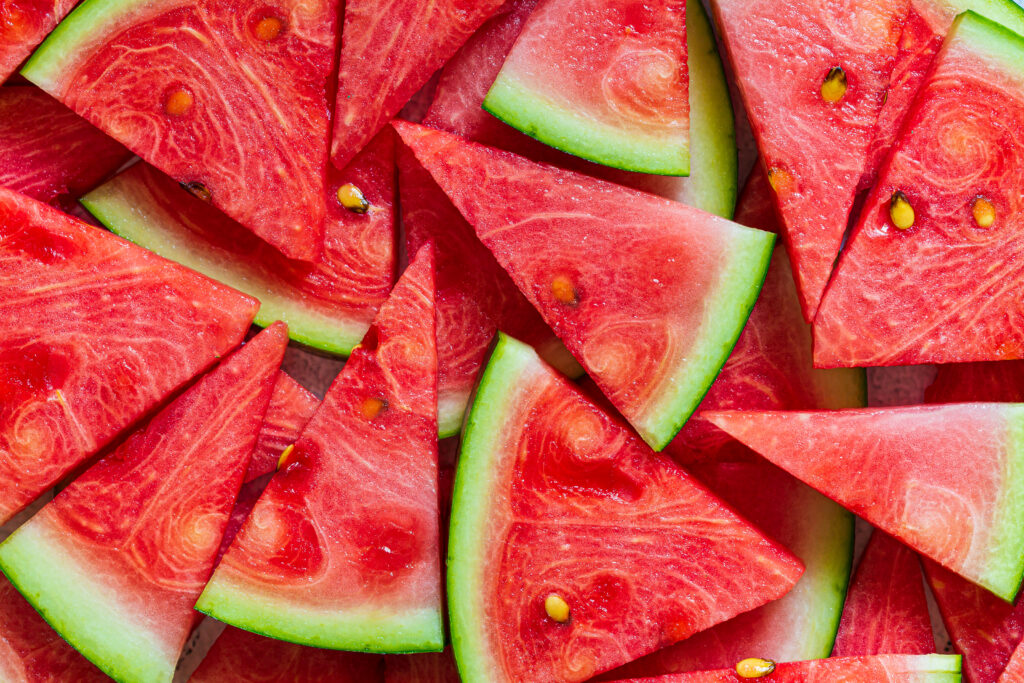While we have much to learn about nutrition and Alzheimer’s risk, there’s no downside to nourishing our brains and bodies with a delicious, scientifically supported Mediterranean diet. Many celebrated Mediterranean ingredients like extra virgin olive oil, fruits, and vegetables contain antioxidants – nutrients that reduce oxidative stress and cell damage in the body.
Oxidative stress is thought to play a role in neurological diseases and aging, so researchers wonder if diets filled with antioxidants might play a role in helping to mitigate disease risk. There are hundreds of different compounds that can be categorized as antioxidants. Some of the most well-known antioxidants include vitamin C, vitamin E, carotenoids, and phenolic compounds.
In a 2023 study published in the Journal of Alzheimer’s Disease, researchers analyzed brain samples from 15 adults with Alzheimer’s disease and 15 matched healthy elderly brains to see if there were differences in the nutrients present in the brains. The donor brains from Alzheimer’s patients had significantly lower levels of the antioxidants lutein, zeaxanthin, retinol, lycopene, and alpha-tocopherol.
Previous studies have found that people who eat more carotenoid antioxidants (such as lutein-zeaxanthin and lycopene) are significantly less likely to show physical signs of Alzheimer’s disease in the brain (such as plaques and tangles), while other studies have found that high levels of lycopene and lutein+zeaxanthin were linked with a significantly lower risk of Alzheimer’s disease mortality.

Antioxidants and Brain Health
Below are a few of the common antioxidants thought to play a role in brain health, and how to enjoy them as part of a brain-healthy Mediterranean diet.
Lutein and zeaxanthin are antioxidants found in green leafy vegetables. Green leafy vegetables, like spinach, kale, and chard, are well known for their links with brain health. Use leafy greens as a filling for savory pies, toss chopped leafy greens into vegetable soups like ribollita or minestrone or simply sauté greens in extra virgin olive oil with a little bit of garlic.
Retinol is a derivative of Vitamin A, the antioxidant found in many orange fruits and vegetables like carrots, sweet potato, and cantaloupe. Dip fresh carrot sticks in hummus, incorporate cooked carrots into carrot ginger soup, or roast carrots with warm spices and serve with a tahini yogurt sauce. Sweet potatoes taste wonderful when oven roasted and are great for serving in Mediterranean-style grain bowls. Cantaloupe is a popular melon in the Mediterranean. Enjoy cantaloupe in a fruit salad, blend it into a smoothie or chilled soup, or pair it with a savory food, like prosciutto.
Lycopene is an antioxidant thought to be associated with heart health. Tomatoes are lycopene powerhouses and are staples of Mediterranean cuisine. Additionally, cooking tomatoes in olive oil, as in many traditional Mediterranean recipes, makes the lycopene more bioavailable (easier for our bodies to access and absorb). Serve a tomato sauce alongside whole grain pasta, as a base in a whole grain and veggie pizza, in a hearty stew with fish and vegetables, or in a baked egg dish like shakshouka. The possibilities are endless! Another delicious source of lycopene is watermelon. Try ending your meal with a sweet slice of watermelon in place of dessert, or try making a watermelon salad prepared with feta cheese and fresh mint.

Alpha-tocopherol is a form of Vitamin E. Nuts and seeds, such as almonds, hazelnuts, peanuts, and sunflower seeds, are all good sources of Vitamin E, and are a popular component of a Mediterranean diet. Enjoy nuts and seeds in Mediterranean-inspired sauces like pesto sauce (an Italian blend of basil, nuts, and olive oil) or Romesco sauce (a Spanish blend of nuts, roasted red peppers, and olive oil). Nuts and seeds can be ground into crumbs and used as a breading for baked fish or chicken. Vitamin E is also present in the germ component of whole grains, which is one of the many reasons why it is important to make the switch from refined to whole grains whenever available.
By embracing a Mediterranean diet, your body and brain will be nourished with an abundance of these antioxidants without even having to think about it. People who consume a Mediterranean diet are shown to have high levels of antioxidants. A review published in the journal Antioxidants found that “the key ingredients of the Mediterranean diet, such as extra virgin olive oil, fruits and vegetables, grains, wine and herbs, contain numerous compounds that act in a beneficial way regarding the development of various chronic diseases,” and that these foods contain “strong antioxidants of the free-radical scavenging type, which have been assumed to protect against oxidative stress and related diseases.”

Start small by incorporating one or two new Mediterranean dishes per week, or adding an extra source of antioxidants (like leafy greens or carrots) into your regular meal rotation. In addition to a brain-healthy boost of nutrition, these foods add mouthwatering flavor, color, and texture to meals — especially when prepared with extra virgin olive oil, herbs, and spices. No matter your age or family health history, we all stand to benefit from eating and living the Mediterranean way!


 Oldways
Oldways